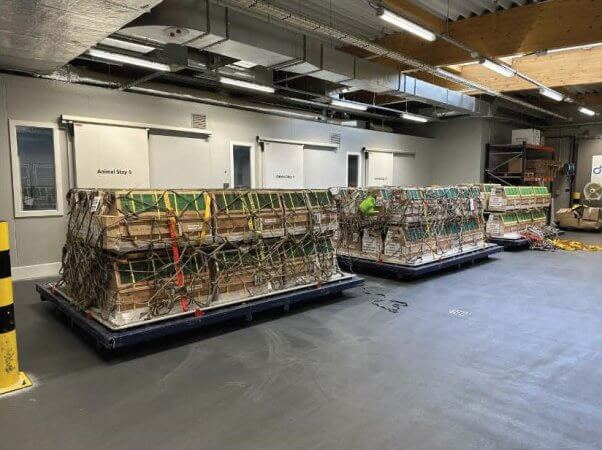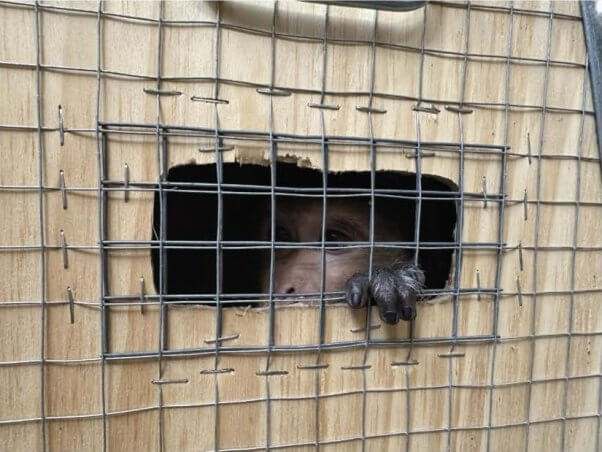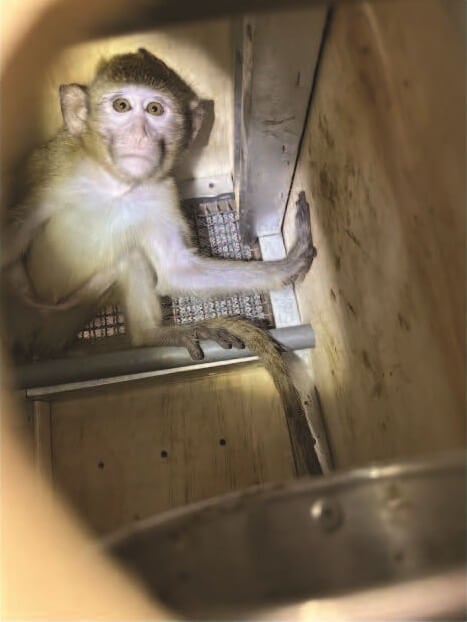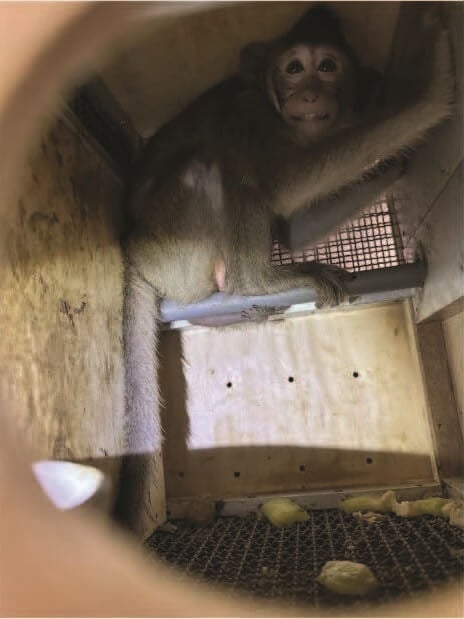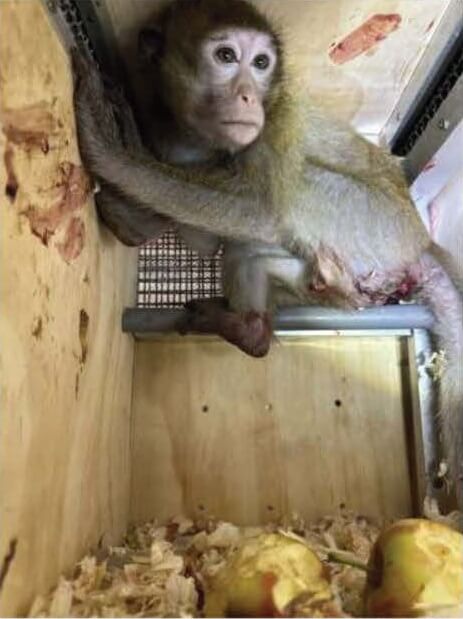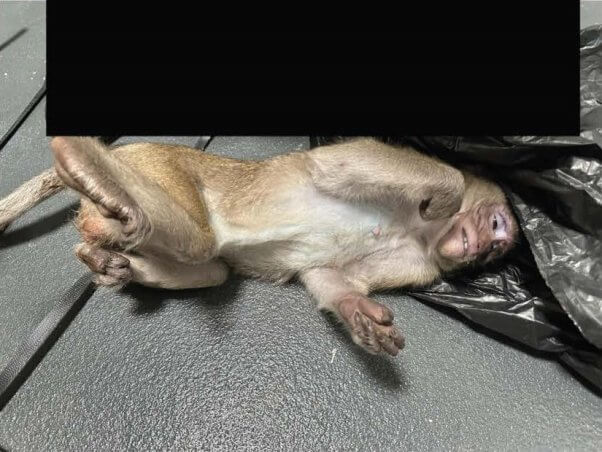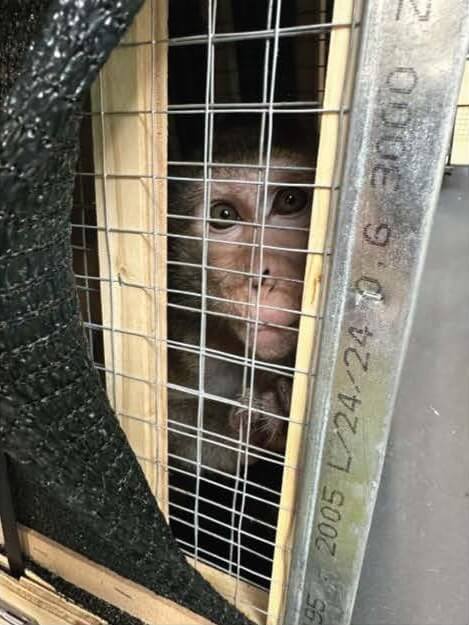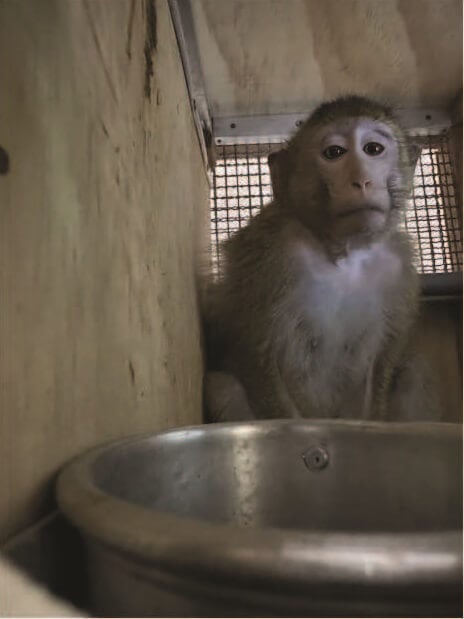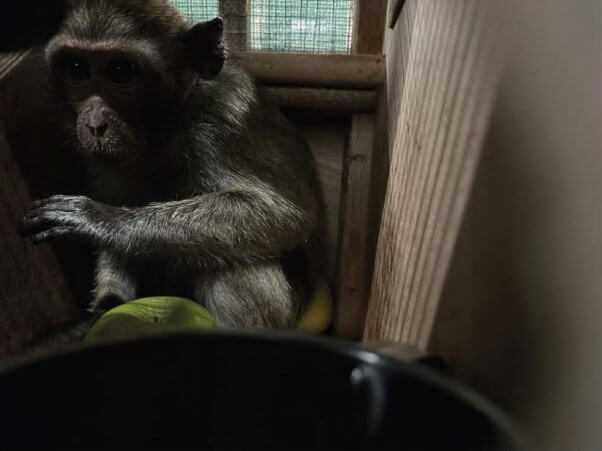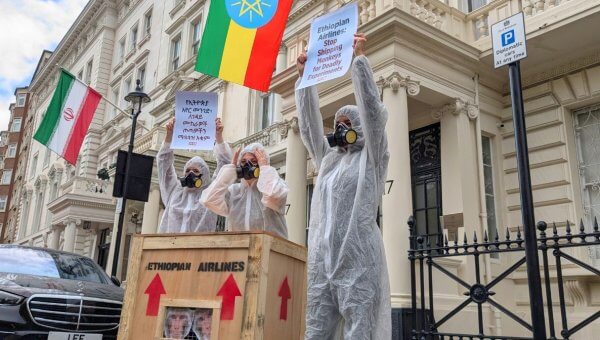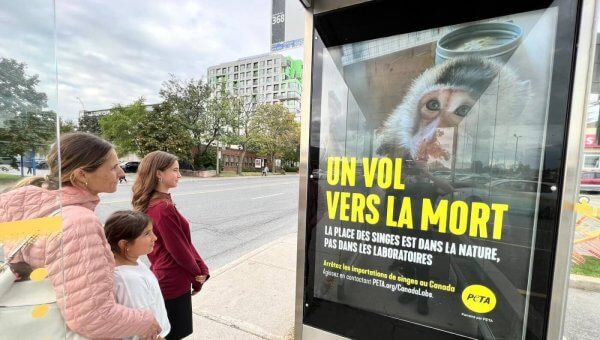Blood, Feces, and Death: Photos Reveal Grim Reality for Monkeys Transported to Labs
The horrors endured by monkeys crammed in crates in the cargo holds of international flights have now been documented in rare photos. Fair warning: It’s not for the faint of heart.
Disturbing photographs, shared with PETA by the Netherlands-based group Stitching Animal Rights, show hundreds of terrified endangered monkeys locked inside airline cargo crates smeared with feces and blood. The animals were en route to laboratories in the United States, United Kingdom, and European Union for use in cruel and deadly experiments.
But not all of them survived the journey.
One animal died alone in a crate.
Snapshots of Misery
The photos were taken by inspectors at Brussels Airport and obtained by Stitching Animal Rights. They offer a rare look inside the misery endured by monkeys throughout nearly a dozen shipments around the globe.
The images show terrified monkeys cowering in the corners of their crates as inspectors peer in through tiny peepholes. Some monkeys were shipped in temperatures colder than guidelines allow. Another endured a prolapse inside a blood-covered crate on a flight to the U.K.
After suffering alone inside tiny wooden cargo boxes for grueling, often days-long journeys, the monkeys are sold to laboratories where they’re sickened, sliced open, and killed in gruesome experiments.
Dead on Arrival
PETA is urging U.S. officials to investigate a July 18 shipment of 333 endangered long-tailed macaques from Belgium to New York City. The animals were packed into crates in Vietnam, flown to France and Spain, quarantined for three months, and eventually trucked to Brussels Airport for exportation to the U.S, reportedly bound for Inotiv, a major supplier of animals for laboratories.
Once in Brussels, inspectors found one monkey dead. But records indicate that no one investigated the cause of death, checked to see whether the monkey was harboring an infectious disease, or enacted precautionary measures to protect the remaining 332 monkeys.
In a letter to the U.S. Centers for Disease Control and Prevention, PETA explains how a monkey death in transit—particularly when no cause is determined—can endanger public health because monkeys transported from Asia to the U.S. are increasingly infected with deadly bacteria and viruses that can also sicken humans.
In a complaint to the U.S. Department of Agriculture, PETA also reports that the monkeys’ transport crates were apparently missing the labels that identify whether animals are inside and right-side up, as required by the federal Animal Welfare Act.
What You Can Do
Monkeys belong in forests with their friends and families. They do not belong in the cramped cargo holds of airlines such as Ethiopian Airlines, destined for a miserable death in laboratories.
It’s time for the government to shut down the monkey importation business before the greedy animal experimentation industry drives some species to extinction.
Please TAKE ACTION and urge the U.S. Centers for Disease Control and Prevention to stop allowing the importation of monkeys for use in laboratory experimentation:
Then, take action to urge Canadian officials to shut down the monkey-importation trade:

